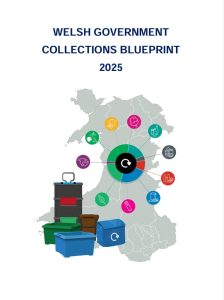Wales Launches ‘Collections Blueprint 2025’ to Strengthen Circular Economy
The Welsh Government has published a new edition of its flagship Collections Blueprint, providing updated best practice guidance to support local authorities in delivering more sustainable, cost-effective, and high-quality recycling services. Titled Collections Blueprint 2025, the new document builds on over a decade of progress and reflects Wales’ ambition to remain a global leader in recycling and circular economy innovation.
Announcing the launch, Deputy First Minister and Cabinet Secretary for Climate Change and Rural Affairs, Huw Irranca-Davies MS, described the updated guidance as a milestone in Wales’ ongoing journey toward zero waste.
“Since the original Blueprint was published in 2011, Wales has made remarkable strides in recycling and waste prevention,” he said. “The 2025 update builds on this legacy, incorporating lessons learned across our local authorities and aligning with our broader circular economy strategy, Beyond Recycling.”
The updated Blueprint aims to help local authorities achieve statutory targets—currently a minimum household recycling rate of 70%—while supporting wider goals around carbon reduction, economic development, and social value. Wales already boasts one of the highest household recycling rates in the world, contributing to an estimated annual reduction of 400,000 tonnes of CO₂ emissions and significantly reducing the need for raw material extraction.
Alongside household recycling improvements, the Welsh Government has taken recent steps to address commercial waste. The Workplace Recycling Law, which came into force in 2024, ensures consistent waste separation across businesses and the public sector—further aligning waste streams with domestic recycling systems.
The 2025 Blueprint also places a stronger emphasis on reuse and repair infrastructure, with the government committed to expanding support for local authority-led initiatives in these areas. This shift aims to drive waste further up the hierarchy, away from disposal and even recycling, towards prevention and circularity.
In highlighting the economic opportunity of a circular economy, Irranca-Davies pointed to recent investments:
-
Jayplas’s new plastic recycling plant in Swansea will process 100,000 tonnes of material annually and create 100 jobs.
-
The £1 billion redevelopment of Shotton Mill in Deeside will transform the site into one of the UK’s largest recycled fibre containerboard production facilities, generating 220 new jobs.
“These examples show that our world-class recycling performance doesn’t just benefit the environment—it attracts investment, creates skilled jobs, and builds resilient supply chains,” said the Deputy First Minister.
Delivery of the Collections Blueprint 2025 will continue in close partnership with local authorities. The Welsh Government has pledged ongoing technical support, access to specialist expertise, and funding for infrastructure upgrades, alongside a focus on decarbonising waste operations and boosting climate resilience.
“I want to thank our local authorities for the pivotal role they’ve played in getting us to this point,” Irranca-Davies said.
“Together, we’ll continue to lead the way in building a greener, fairer, and more circular Wales.”


